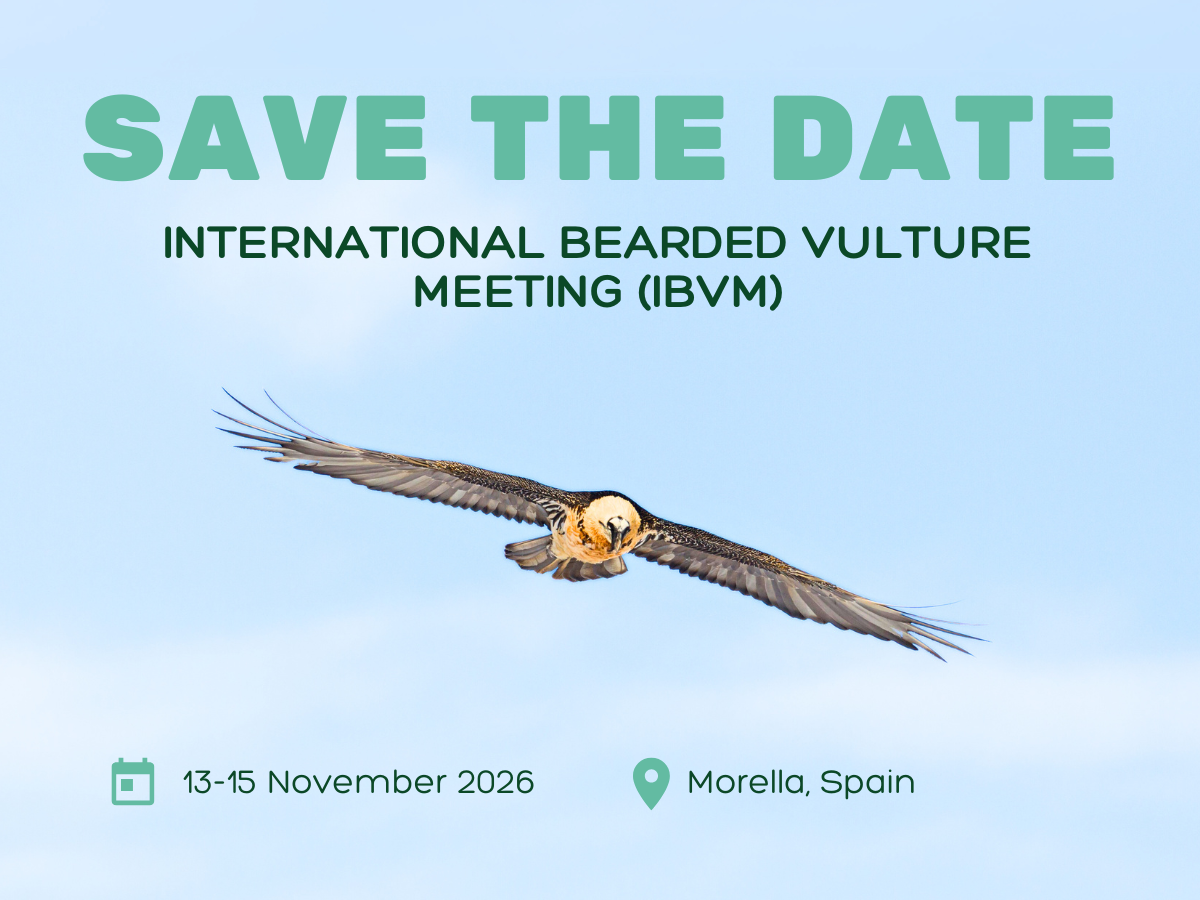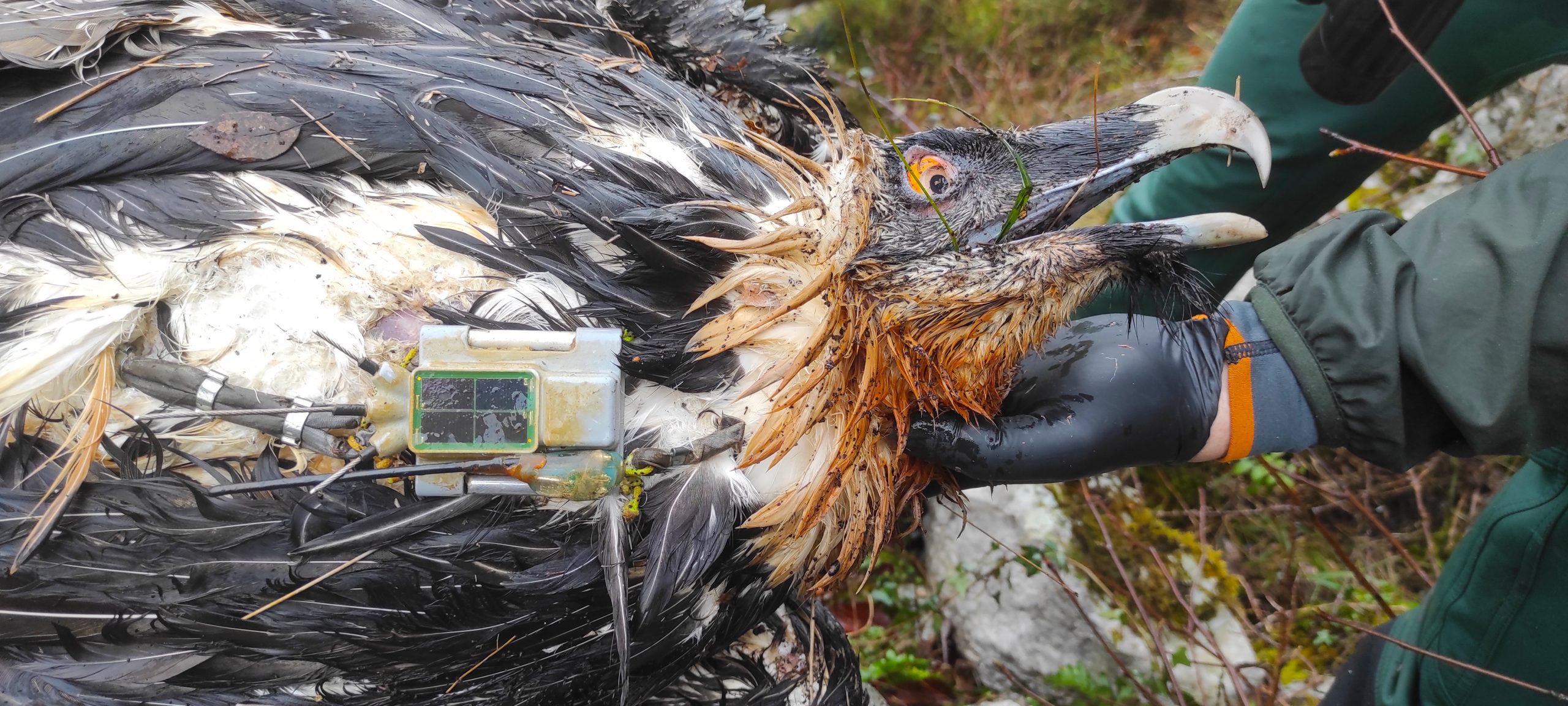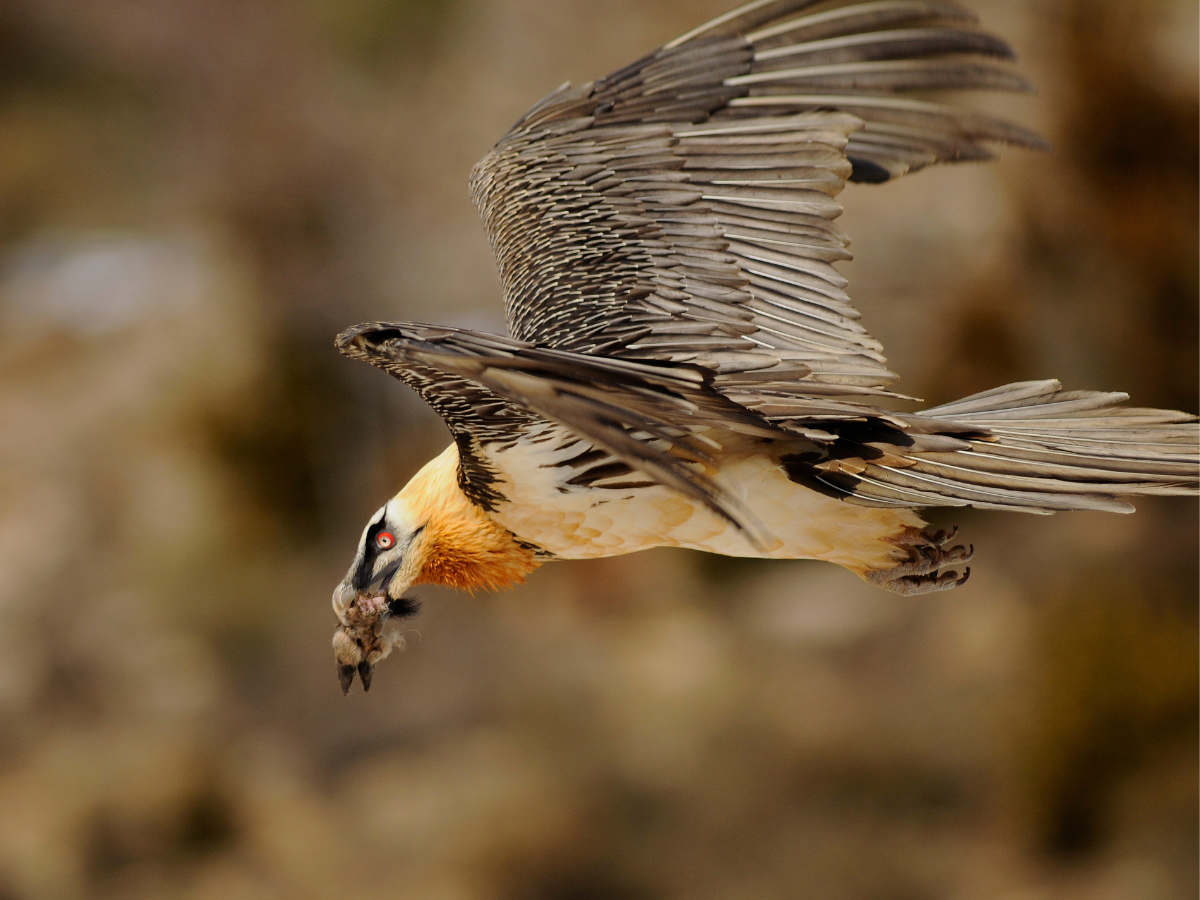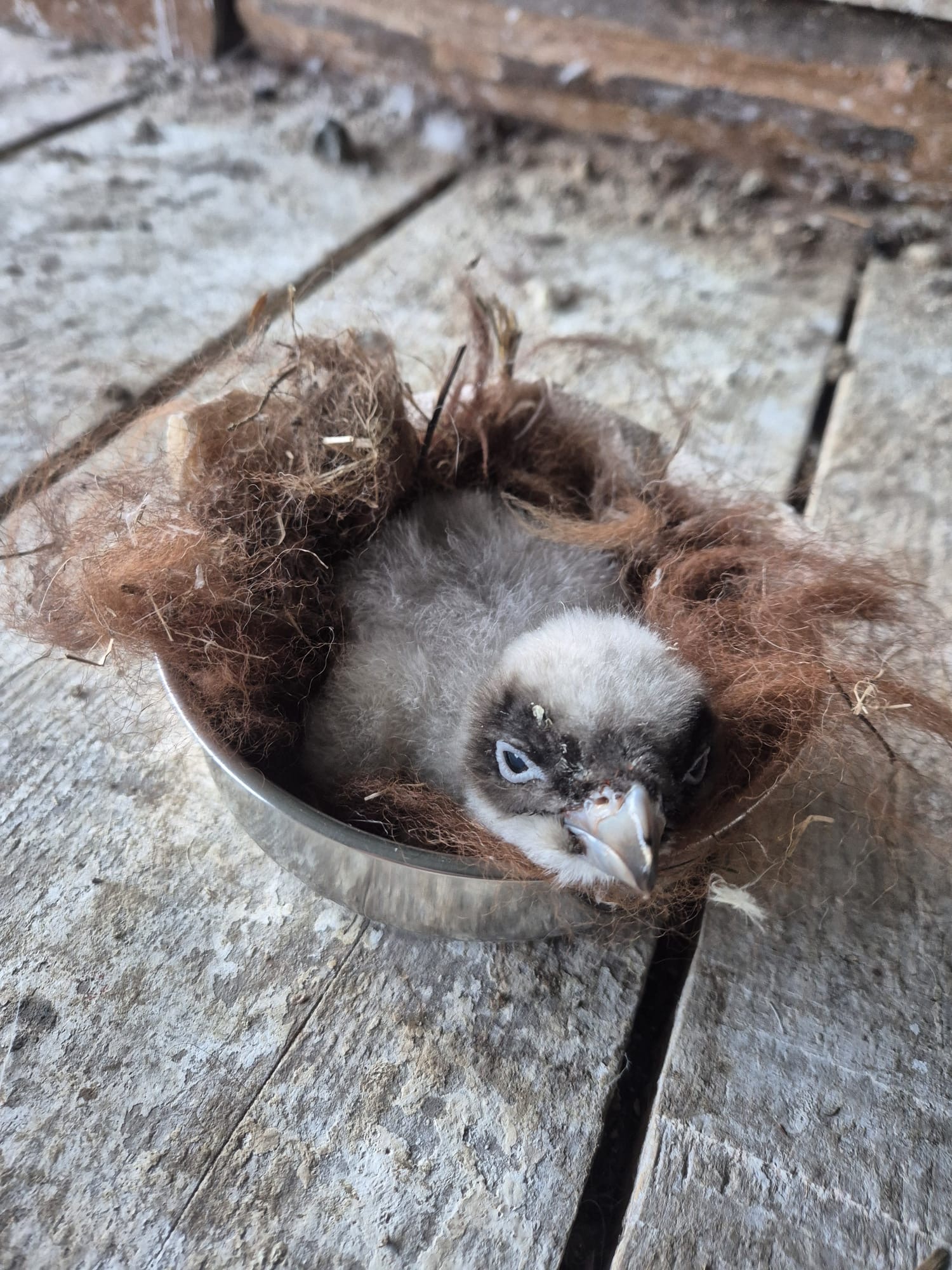Over three weeks have passed since Univers, a young Bearded Vulture (Gypeatus Barbatus) from Andalusia, joined the Grands Causses release site, where he now shares the ledge with fellow juveniles Ubac and Ushuaïa. Since his arrival, Univers has adjusted remarkably well to his new surroundings. While he still tends to beg food from the others, his behavior and development show all the signs of a healthy and successful adaptation to life in the wild.
Bearded Vultures Ushuaia and Ubac at the release site © Théo Gaucerand
Growing tensions on the ledge
As time has gone by, the ledge that once comfortably accommodated the whole trio has started to feel a bit tight for all of them. Both Ushuaïa and Ubac have reached the theoretical age of their first flight, and with that milestone approaching, tensions have grown. Daily spats and food-stealing attempts became common, particularly from Ubac — the eldest of the three — signaling he was ready for the next step.
Ubac takes off
In preparation for these crucial first flights, the team had planned to expand their living space to give the birds more freedom of movement. But Ubac had other plans. On the warm evening of Monday, June 23, before the planned opening of the enclosure, Ubac seized the moment — and took off on his first flight.
Search, relief, and a first recorded flight
By the next morning, the monitoring team noticed his absence. Without having witnessed the flight, they were unsure of his condition or location — an anxious moment for all involved. Fortunately, after a short search, Ubac was spotted safe and sound, perched just a few hundred meters from the release site. Relief quickly turned into celebration.
A few hours later, Ubac also offered his first officially observed flight — an elegant journey lasting 2 minutes and 28 seconds, during which he covered several hundred meters. An extremely promising start for a young vulture beginning life in the wild.
A hopeful chapter for Bearded Vulture conservation
This new chapter for Bearded Vultures in southern France is both heartening and hopeful. Every successful flight brings us closer to a future where these majestic scavengers once again thrive in Europe’s skies. We
LIFE Gyp’Act is a 13M€ project, co-funded by the EU’s LIFE programme, that will run until 30 November 2028. Project partners are LPO – Ligue pour la Protection des Oiseaux as coordinator beneficiary, and the Vulture Conservation Foundation, Association Vautours en Baronnies, LPO Auvergne-Rhone-Alpes, LPO Occitanie, Sorbonne Université, ENEDIS, Centre National d’Informations Toxicologiques Vétérinaires, Parc National des Cévennes e Parc Naturel Régional du Vercors as associated beneficiaries.



